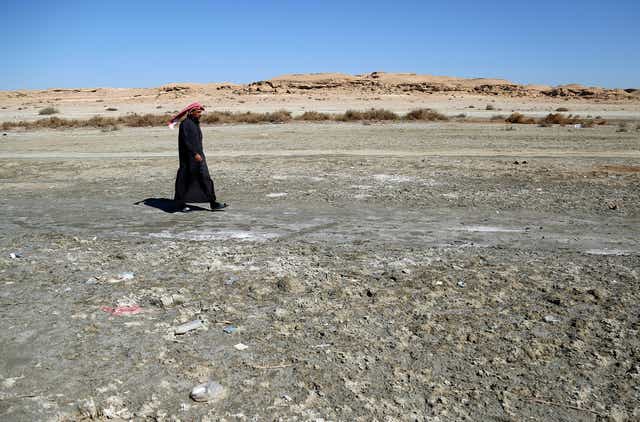The famous lake of Iraq’ Razzaza Lake’ was once renowned for the tourist attraction and known for its beautiful scenery and abundant fish. Many local residents depended on that river for fish.
Now, dead fish litter its shores and the once fertile lands around it have turned into a barren desert. One of Iraq’s largest lakes, the man-made Razzaza, is witnessing a significant decline in water levels and has been badly hit by pollution and high salinity levels.
Some three decades back, in 1980-1990, the Razzaza lake was a source of livelihood. It had fish including the yellowfin barbel, Binni and carp because the water level was good that time, said fisherman ‘Saleh Abboud’ But, unfortunately, it has dried up now.
Razzaza Lake is the current victim of a water crisis in Iraq, also famous with the name of “Land between the Two Rivers”, the Tigris and the Euphrates. Upstream dams in Turkey, Syria and Iran have shrunk the rivers and their tributaries; sensational rainfall has gone down, and infrastructure has disappeared.
Near, hundreds of families relied on fishing the Razzaza for their livelihood. Currently, the number of dead fish that turns up is bigger than the number of live fish they can catch.
Razzaza Lake’s second name is Lake Milh, Arabic for Salt Lake, located between Iraq’s governorates of Anbar and Karbala. It’s the second-largest lake in Iraq, and it is a part of a wide valley that includes the lakes of Habbaniyah, Tharthar and Bahr al-Najaf.
The reason behind the lake’s construction is to control floods in the Euphrates and be used as a huge reservoir for irrigation motives. Iraqis and tourists consider as a recreational spot to cool down during the hot summers of Iraq.
In recent years, it has been affected by the water shortage and by drought, neglect, and increased evaporation during Iraq’s hot summers. It has been hit harder by pollution due to the diversion of sewage water into the lake.
According to ‘Aoun Diab Abdullah’ one of the Ministry of Water Resources advisers, we cannot use the lake for the water resources because we do not have sufficient water for that or to boost the Razzaza Lake.

